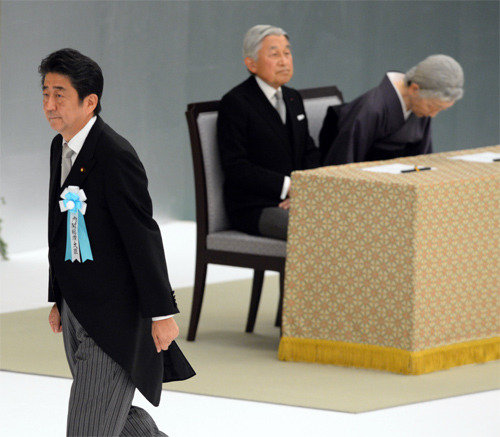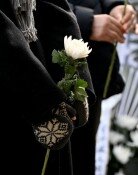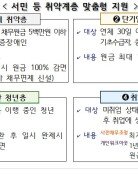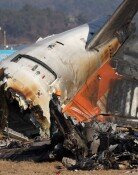Abe avoids wartime reflection despite Japanese emperor's remorse
Abe avoids wartime reflection despite Japanese emperor's remorse
Posted August. 16, 2016 06:48,
Updated August. 16, 2016 07:06

The emperor expressed “deep remorse” over the war, a new phrase inserted last year, at the 70th anniversary of Japan’s World War II surrender. Repeating the same phrase in two consecutive years can be interpreted that he had intentions. Some argued that he wanted to warn Prime Minister Shinzo Abe indirectly for his recent rightist moves such as efforts to beatify the country’s wartime history and to amend the constitution, while avoiding the ban to engage in political activities under the constitution.
“I now pay my heartfelt tribute to all those who lost their lives in the war, both on the battle fields and elsewhere, and pray for world peace and for the continuing development of our country,” he added.
Mr. Abe delivered his memorial address prior to the emperor, without mentioning “regret on wrongdoings of the past against Asian countries.” For the past four years, the prime minister has omitted “making the no-war pledge,” which all his predecessors including Morihiro Hosokawa had included in their memorial speeches since 1933.
"Korea expresses deep worry and regret over leaders of the Japanese government and parliament given their ritual offering and paying homage to Yasukuni Shrine to glorify Japan’s war of aggression," South Korea’s Foreign Ministry said at its statement on the day.
도쿄=장원재특파원 peacechaos@donga.com · 조숭호기자 shcho@donga.com






